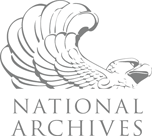 Webコンテンツの表示
Webコンテンツの表示
A Few Words From Eleanor Roosevelt Activity
In these difficult times, when we are practicing “social distancing” – physically separating ourselves from each other – it is important to know that we are not truly alone. The words of our leaders, past and present, can lift our spirits and unite us in the common challenges we face.
CATEGORY:
Language Arts, Current Events, Writing, Research
GRADE LEVEL:
Middle and High School
SUGGESTED TIME:
30-60 minutes
SUGGESTED MATERIALS:
Paper, pencil, computer
DISCOVERY OBJECTIVES:
To learn the importance of words to comfort, inform, reassure, and inspire people in times of trouble and uncertainty.
TAG US IN SOCIAL MEDIA:
Post a picture of your work to social media with the hashtag #fdractivities



